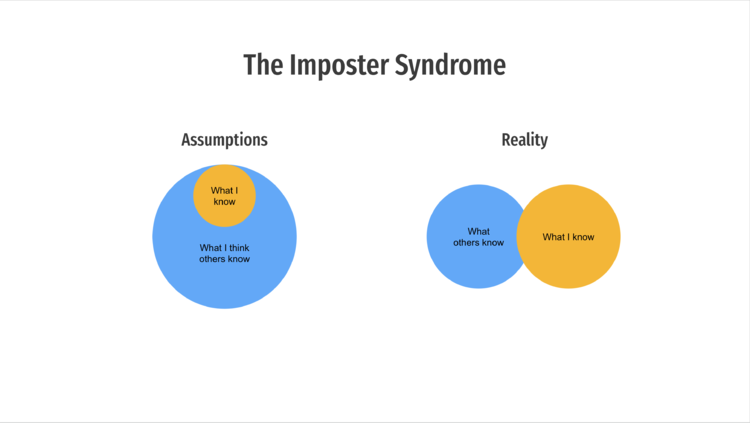August 30, 2021
The Imposter syndrome

People with imposter syndrome tend to be perfectionists, which means they’re likely to spend hours working overtime to make sure they excel in every single field. So if you do suffer from imposter syndrome, chances are you’re doing a pretty good job.
One of the biggest causes for concern in the software development industry is imposter syndrome. These feelings of inadequacy can be present in many of the things that we do, but building software is one of the areas where it is quite common. There are likely a number of reasons for this:
- Developing software is a multi-faceted activity. From design, to writing code, evaluation and testing. Very few people are truly experts in all of the domains.
- Software engineering tools and practices change on a regular basis. This often means that best practice might vary from case-to-case and from organization-to-organization.
- There is inherent subjectivity in such practices. It is not to say for instance that assembly language is better or worse than Python, it just has a different practical use case. The diversity of the field lends itself well to difficult to make comparisons of tools and skill sets.
I want you to try to consider this in the realms of reality and be honest on reflection. The best developers experience this feeling. Try not to let it be something that is debilitating in your experience but instead embrace the complexity as a challenge and an opportunity to grow and develop.
There is evidence to suggest that imposter syndrome correlates with success—and that those who don’t suffer imposter symptom are more likely to be the real frauds.
I would like you to read one of the following articles on this:
